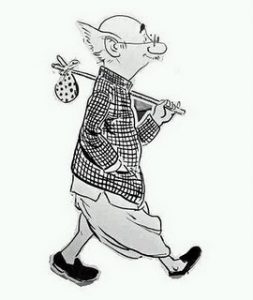Myth of ‘Common Man’ and Indian Politics
By Himanshu Guru: In Indian politics, the coin of ‘common man’ has been widely played by the politicians to achieve their political target. When ‘Aam Aadmi’ is a popular phrase in Indian political dictionary, Congress party is the best beneficiary of this myth.
 The actual meaning of ‘Politics’ has been changed in India due to the selfish intention of many politicians. In a democracy, Politics refers to a process by which groups of people make collective decisions.
The actual meaning of ‘Politics’ has been changed in India due to the selfish intention of many politicians. In a democracy, Politics refers to a process by which groups of people make collective decisions.
The term is generally applied to the art or science of running governmental or state affairs. It consists of “social relations involving authority or power” and refers to the regulation of public affairs within a political unit and to the methods and tactics used to formulate and apply policies.
But after independence history of India has witnessed wide use of wrongful and sometimes illegal tactics and ‘common man’ politics has been seen as the best weapon among all. Hence nowadays any clever trick of power achievement is known as politics in India and it is a pure negative term.
‘Common man’ denotes a broad social division referring to ordinary people who are members of neither the nobility nor the priesthood. Following the rise of the middle class in the 19th century, this division is now of mainly historical interest.
Since the 20th century, the term “common man” has been used in a more general sense to refer to typical members of society in contrast to highly privileged mass in lieu of either wealth or influence. The rest of the people can be termed as ‘better off’ people.
In many countries, the ‘common man’ issue has emerged because the policies by the government for Economic Liberalization benefit the selected few, but not the “Common Man”. When Coca-Cola and IBM returned to India in 1993, the question asked was: “How will this benefit the Common Man, who doesn’t even have access to water or electricity?”
Support Independent Journalism? Keep us live.
The problem of common man mainly related with economic independence. The slightest rise in price hampers the common men, but it does not affect the budget or lifestyle of the better-offs. They don’t need to curtail and adjust their budget to move at par with the price rise.
In a microanalysis we cannot classify a group of people to be the common, but approximately we can assume that the helpless people who are the worst victim and least beneficiaries of the policies of the state are common. In country like India lion’s share of the total demography come under this group.
So, tricks like minority and religious game may fail, but ‘common man’ trick never fails. This has been successfully implemented mainly by the Congress party and now is an expert in it.
On many occasions, the policies look like prepared for the common people, but actually the benefit flows to the uncommon, heading through the commons. The ‘common man’ issue cannot be resolved any day because it has been especially originated by a clever politician group for their own political benefit. Once it will be settled the said politicians will lose their professions, for which they are not interested to chalk it out.
In some pretext, the enactments are also full of confusion. Like, in the constitution of India, when article 14 provides equality as a fundamental right to the citizens, Scheduled tribe and caste people are given abundant benefits which are not available to the higher caste people although many members of the higher castes are the most deserving aspirants for the same. Everybody knows it is a ‘vote bank trick’.
The reason of discussing this point is to articulate that here also the common man suffers. The uncommon man becomes victim and so turns into common by the misconception. Again, due to lack of far sight some policies also fail.
Hence it can be rounded up that there is not an ethical common man concept, rather it is a myth created by some shrewd politicians to run their political business. Once policies will be made keeping in view the real interest of the citizens, everybody, including the rich and poor will reap the benefit and there will not be any notion of ‘common man’.
